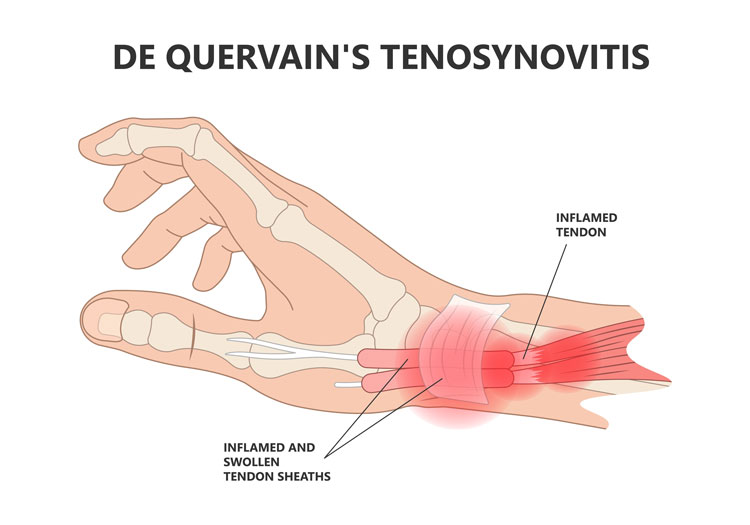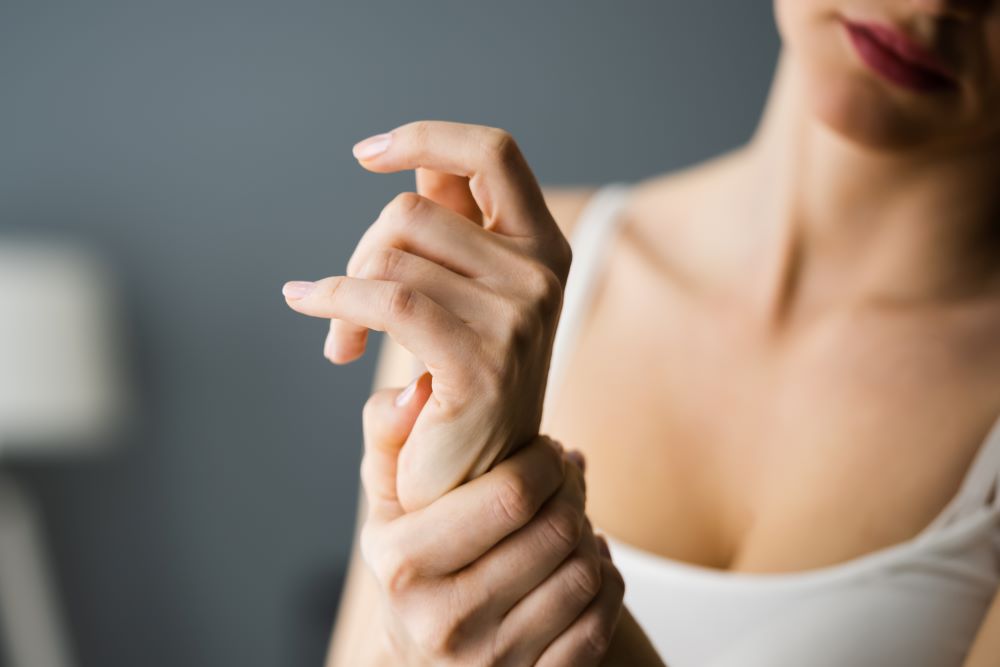Motherhood is a journey filled with challenges and rewards. Amidst the sleepless nights and unconditional love, there’s an unexpected hurdle some mothers face: De Quervain’s Tenosynovitis. This condition affects the tendons in the wrist and thumb, causing pain and discomfort.
Understanding De Quervain’s Tenosynovitis
De Quervain’s Tenosynovitis is a condition that primarily affects the tendons in the wrist and thumb. It’s characterized by inflammation of the tendon sheath, resulting in pain, swelling, and limited mobility in the affected area.
The symptoms of De Quervain’s Tenosynovitis can be quite debilitating. If you’re a mother dealing with this condition, you might experience:
- Pain and tenderness at the base of your thumb
- Swelling and inflammation
- Difficulty gripping or pinching objects
- A “catching” or “snapping” sensation when moving the thumb
- Pain that can radiate up the forearm
The Relationship with Motherhood
De Quervain’s Tenosynovitis can significantly impact mothers due to the demands of caring for a baby or toddler.
How it affects mothers:
- Holding and Feeding: New mothers spend a lot of time holding and feeding their babies, which can strain the wrist and thumb.
- Nappy Changing: Changing the nappy, especially while holding the baby’s legs with one hand and using the other to clean and fasten the nappy, can stress the affected tendons.
- Lifting and Carrying: As children grow, mothers often need to lift and carry them, which can be challenging with De Quervain’s Tenosynovitis.
- Household Chores: Mothers often juggle household chores alongside child care, which can further strain the wrist and thumb.
Preventing and Managing De Quervain’s Tenosynovitis
Preventing and managing De Quervain’s Tenosynovitis is crucial in order for mothers to remain active and involved in their child’s life without pain.
Here are some strategies:
- Rest and Immobilisation: Give your wrist and thumb the rest they need and use a splint to immobilise the thumb.
- Ice and Anti-Inflammatories: Apply ice and take over-the-counter anti-inflammatory medications to reduce swelling and pain.
- Ergonomics: Pay attention to your posture and hand positioning when holding, feeding, or carrying your child. Use proper techniques to reduce strain on your wrist and thumb.
- Physiotherapy: We can provide exercises and techniques to strengthen the affected tendons and improve mobility.
Motherhood is a beautiful experience, but it can be challenging, especially when dealing with conditions like De Quervain’s Tenosynovitis. Prioritising self-care, seeking medical advice when needed, and adopting strategies to manage and prevent the condition is key. A healthy, pain-free mother is better equipped to care for her little ones and cherish every moment of motherhood.
If you have any further questions, feel free to give us a call on 07 3358 3915 to book an appointment with one of our Physiotherapists who can help.
Written by Cathryn Prout




